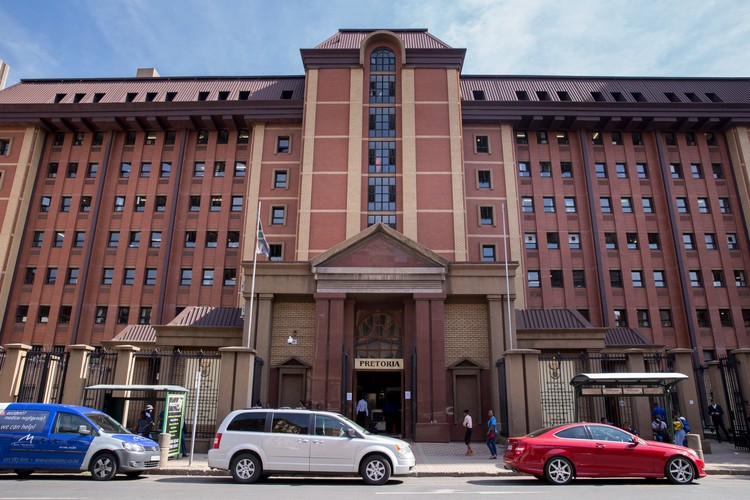Judge hands down ruling three years late
For most of that time there was no record of it in the official report that tracks late judgments
Gauteng High Court judge Letty Molopa-Sethosa delivered a judgment that had been outstanding since August 2022. The case, however, never appeared on any of the judiciary’s reserved judgments reports. Archive photo: Ashraf Hendricks
- Judge Letty Molopa-Sethosa of the Gauteng High Court in Pretoria delivered a judgment three years after reserving it.
- Although the matter was handed down, the judge provided no reasons for the delay in her ruling.
- The judgment was also missing from all the judiciary’s reserved judgments reports, due to what the Office of the Chief Justice called a rare “oversight”.
- Judges Matter researcher Mbekezeli Benjamin said the incident exposes flaws in the honour-based reporting system and called for automated tracking of reserved judgments.
A Gauteng High Court judge has finally delivered a judgment that had been outstanding since August 2022. The case, however, never appeared on any of the Judiciary’s reserved judgments reports.
The matter was between two businessmen and was heard in Pretoria on 15 August 2022. Judgment was reserved the same day by Judge Letty Molopa-Sethosa. Six months later, on 13 February 2023, the plaintiff’s attorneys sent a letter to Molopa-Sethosa asking when judgment would be delivered. When they did not receive a response, they sent another letter in October 2024 to Gauteng Judge President Dunstan Mlambo. Despite these efforts, a ruling was not delivered.
The judicial norms and standards state that, except in exceptional circumstances, a judgment should not take longer than three months to deliver. GroundUp and the Office of the Chief Justice (OCJ) use a more lenient six-month benchmark to consider a judgment late. Because the system relies on judges to self-report, there is no automatic mechanism to flag missing or late judgments.
Despite already having passed the six-month mark in February 2023, this case did not appear in any reports. Molopa-Sethosa was only listed as having one outstanding judgment, a different matter reserved in October 2023.
When judgment was eventually delivered in September 2025, Molopa-Sethosa dismissed the matter with costs. Despite the case taking three years, no explanation was given for the delay.
Failure to report
According to the OCJ, the case did not appear in the reserved judgments list due to a reporting “oversight”.
“When a judgment is reserved, an endorsement to that effect is made on the file in question by the judge’s secretary. This information is then shared with the statisticians, who themselves track the reserved judgment,” the OCJ said. “It is apparent that if there is an oversight in effecting this endorsement, the status of the reserved judgment will be unknown.”
The OCJ said the Office of the Judge President became aware of the possible oversight in November 2024, but only managed to verify the matter’s status in August 2025. It was eventually delivered on 18 September 2025.
The OCJ described the delay as “less than ideal” but said such cases were rare. “Given the volume of matters in the Gauteng Division, in conjunction with the human element in the compilation of these records, all efforts are made to ensure accurate tracking of reserved judgments. Should any oversight occur, accountability measures are present to address such instances,” the OCJ said.
Judges Matter researcher Mbekezeli Benjamin said that under Article 10 of the Judicial Code of Conduct, judges have an ethical and legal duty to keep records of outstanding judgments and report them to the head of court.
He said it was “worrying” that a judgment reserved for three years never appeared on any of the reports. “There could very well be reasonable explanations, including administrative errors, but it does raise concerns about the effectiveness of accountability in the judiciary,” he said
Benjamin said the incident highlights flaws in the current self-reporting system. “While we have no reason to doubt the integrity of our judges, the fact that the reporting system is based on an honour system makes it vulnerable to lapses in reporting,” he said, adding that unreported judgments undermine transparency, accountability and the public’s trust in the judiciary.
Benjamin suggested an automated electronic system that would log when a judgment is reserved and send reminders as deadlines approach.
After enquiries by GroundUp, the missing judgment was added to the judiciary’s recent reports in 2025.
Support independent journalism
Donate using Payfast

Don't miss out on the latest news
We respect your privacy, and promise we won't spam you.
Next: Magistrates protest outside court, demanding higher wages
Previous: In photos: Teenager supports her family using an e-bike
© 2025 GroundUp. This article is licensed under a Creative Commons Attribution-NoDerivatives 4.0 International License.
You may republish this article, so long as you credit the authors and GroundUp, and do not change the text. Please include a link back to the original article.
We put an invisible pixel in the article so that we can count traffic to republishers. All analytics tools are solely on our servers. We do not give our logs to any third party. Logs are deleted after two weeks. We do not use any IP address identifying information except to count regional traffic. We are solely interested in counting hits, not tracking users. If you republish, please do not delete the invisible pixel.

